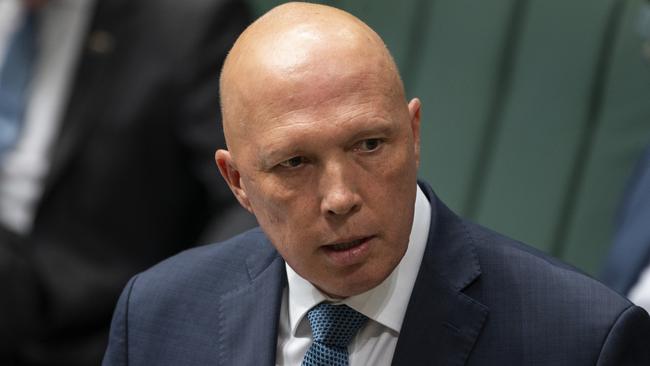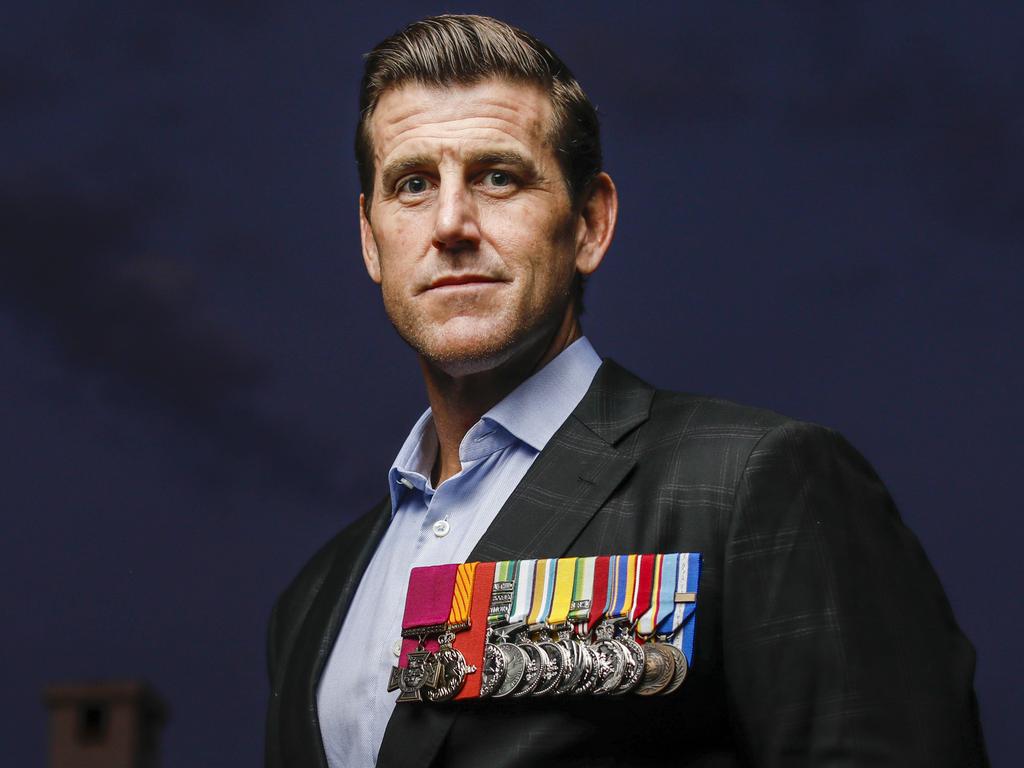Peter Dutton rules out contracts for author Samantha Crompvoets
Peter Dutton says a sociologist who uncovered alleged war crimes is unlikely to get further Defence contracts.

Peter Dutton says a sociologist who wrote a book on “blood lust” in the military after helping to uncover alleged war crimes by Australian soldiers is unlikely to get further Defence contracts.
The Defence Minister said he’d sought legal advice about the soon-to-be-published book based on Samantha Crompvoets’ work with special forces soldiers, which in-part led to the Brereton war crimes inquiry.
“I just want to make sure that I get to the bottom of this, get all of the facts, get the legal advice and see what my options are and then I’ll make a decision from there,” Mr Dutton told 2GB.
Dr Crompvoets’ company Rapid Context has completed $6.5 million in Defence contracts since 2013, including a study on special forces culture during which some soldiers disclosed allegations of war crimes.

Her work for Defence also included social and change management research and organisational psychology studies.
Mr Dutton said he was keen for Defence to “learn the lessons” of what happened in Afghanistan, but wanted it “not to be distracted by things that have happened in the past”.
“I mean I’ve made my view very clear to Defence and I don’t think you’ll see any more contracts awarded in this regard,” he said.
Independent Senator Jacqui Lambie demanded in Senate Estimates on Wednesday to know whether Defence had cleared Dr Crompvoets’ book for publication.
The Chief of the Defence Force, Angus Campbell, said he did not believe Defence approval was required for the publication, but the department was yet to receive a copy.
“Subject to what is in it, Defence may have concerns, or not,” he said.
The book, Blood Lust, Trust and Blame, is due to be released on July 1.
According to Monash University Publishing, it argues, “abuses of power and the normalisation of deviance are at the heart of the ‘cultural issues’ that have long plagued the Australian Defence Force”.
Senator Lambie said under Department of Veterans’ Affairs and Defence human research ethics guidelines, researchers were required to seek approvals from senior officials before publishing on the outcomes of their research on veterans and ADF members.
“Should that not apply here?” she said.
The Australian contacted Dr Crompvoets, but did not receive a reply.
Her study of special forces culture, delivered to Defence in January 2016, reported soldiers engaging in “body count competitions”, “sanctioned massacres” and “torture” by special forces soldiers.
“When they left the village, the men and boys would be found dead, shot in the head, sometimes blindfolded and throats slit. These are corroborated accounts.”
Dr Crompvoets reported one alleged incident that was not in the unredacted Brereton report released last year, in which two 14-year-old boys’ throats were allegedly cut by special forces personnel, and their bodies thrown in a river.
The allegation formed the basis of a Chinese propaganda meme of an Australian soldier with a knife to a child’s throat, which was posted to Twitter by Chinese foreign ministry spokesman Zhao Lijian.
Dr Crompvoets said in the report she was a “naive observer”, but prided herself on “my ability to determine, for want of a better phrase, the bullshit factor”.





